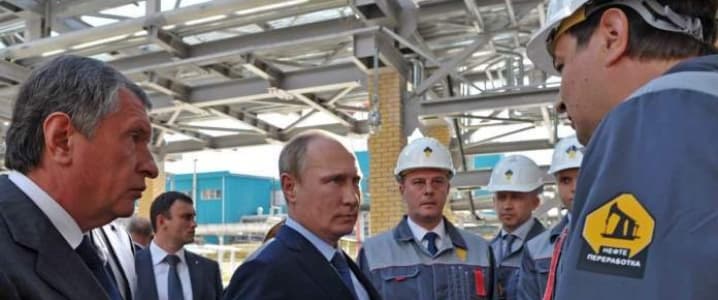Investors betting on a smooth outcome at the OPEC meeting are in for a rude surprise, according to Goldman Sachs.
The investment bank warned that the oil market could be disappointed in a few days because there is a higher degree of uncertainty heading into the talks than there was at previous meetings.
The working assumption is that OPEC and the group of non-OPEC countries will agree to extend the production cuts for an additional nine months, keeping them in place until the end of 2018. Indeed, at the time of this writing, it appeared that the OPEC joint technical committee was on the verge of recommending as much ahead of the full meeting.
But the successful outcome of such a recommendation hinges on Russia, the one party that has been the most hesitant about an extension, at least for such a lengthy duration. Some Russian officials have suggested a shorter extension, while others suggest waiting until the March 2018 expiration date draws near before making a decision.
That hesitation flies in the face of the confident and reassuring talk coming from OPEC – particularly from Saudi Arabia and its Gulf allies. This discrepancy increases the odds of a surprise outcome in Vienna.
“We believe the absence of such a consensus is due both to the uncertainty on the progress of the oil market rebalancing as well as Brent oil prices trading at $63/bbl,” Goldman Sachs analysts wrote in a research note. “The push for a nine-month extension, four months before the cuts end and given an accelerating rebalancing further stands in the face of prior comments that the cuts should remain data dependent to assess their effectiveness.” Related: Oil Prices Could Jump To $80 Next Year
The investment bank cited several factors that expose the oil market to a sudden selloff. Oil prices are at their highest point in years, undercutting the rationale for an extension; hedge funds and money managers have amassed bullish bets on oil, heightening the risk of a correction to the downside; and the time spreads in the futures market also suggest that the market is already priced in a nine-month extension, opening up the possibility that the market is caught by surprise.
“With the rhetoric not matching the logic for the ?rst time in years, we believe that the outcome of this meeting is much more uncertain than usual,” Goldman analysts concluded. There are a series of other details that raise questions about the conventional wisdom regarding a nine-month extension: OPEC tends to have a bearish bias on oil fundamentals; Russia does not need the extension as much as OPEC; and Russian officials have suggested over the past year that an extension should be data dependent, meaning that they would want to wait before agreeing to such a lengthy extension. Related: The Oil Information Cartel Is (Finally) Broken
The investment bank assumes that OPEC and Russia ramp up production by April 2018, suggesting that even a six-month extension might appear bullish at first blush. But by mid-year onwards, Goldman predicts that compliance will slip “as OPEC and Russia come to the realization that the New Oil Order is alive and well and that prices have overshot the industry’s marginal cost.”
Nevertheless, even though Goldman says the chances of disappointment are much greater than everyone assumes, the investment bank does not predict a massive selloff in prices. The bank believes inventories are tighter than the market believes, and that the fundamentals will continue to push the physical market towards a balance.
Moreover, Goldman also is forecasting much stronger oil demand growth than either OPEC or the IEA, with expectations of demand growth of 1.7 million barrels per day (mb/d) in 2017 and 1.6 mb/d in 2018 – cumulatively 0.2 mb/d higher than OPEC’s assumption and 0.4 mb/d higher than the IEA’s forecast. As such, even if there is some short-term volatility, the ongoing improvement in the fundamentals will keep prices from collapsing.
Cooler heads might be able to digest that nuance, but if OPEC and Russia fail to extend for nine months, the headlines will surely scream about their failure.
By Nick Cunningham of Oilprice.com
More Top Reads From Oilprice.com:
- 54 Things You Didn’t Know About Natural Gas
- Citi: Prepare For An OPEC Disappointment
- Sweden Burns H&M Clothes As Fuel


















